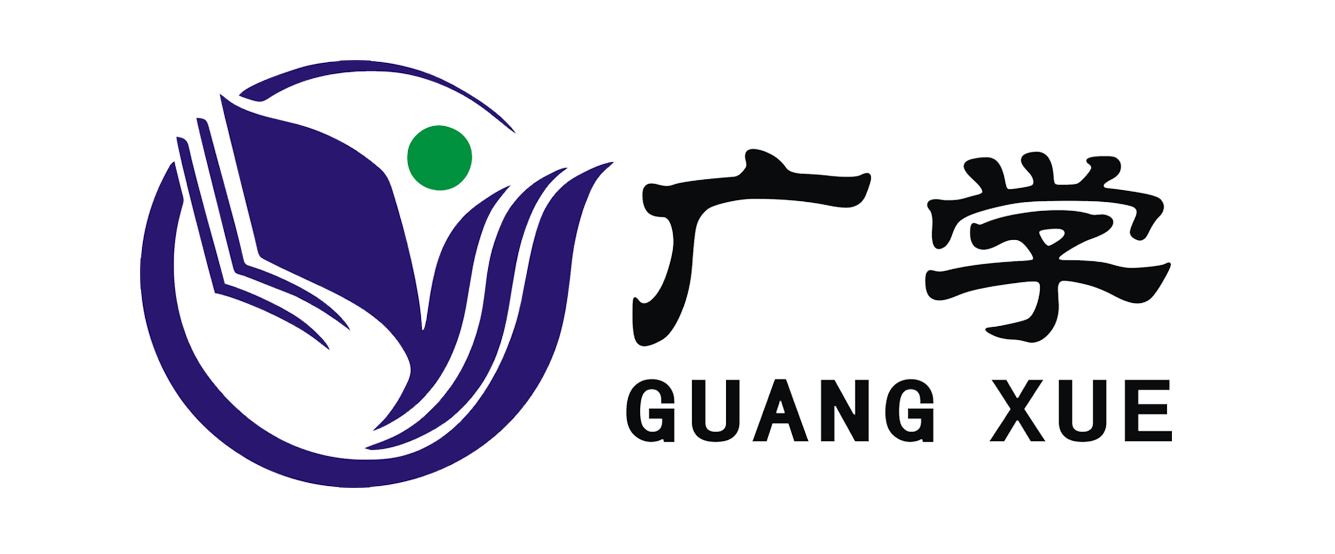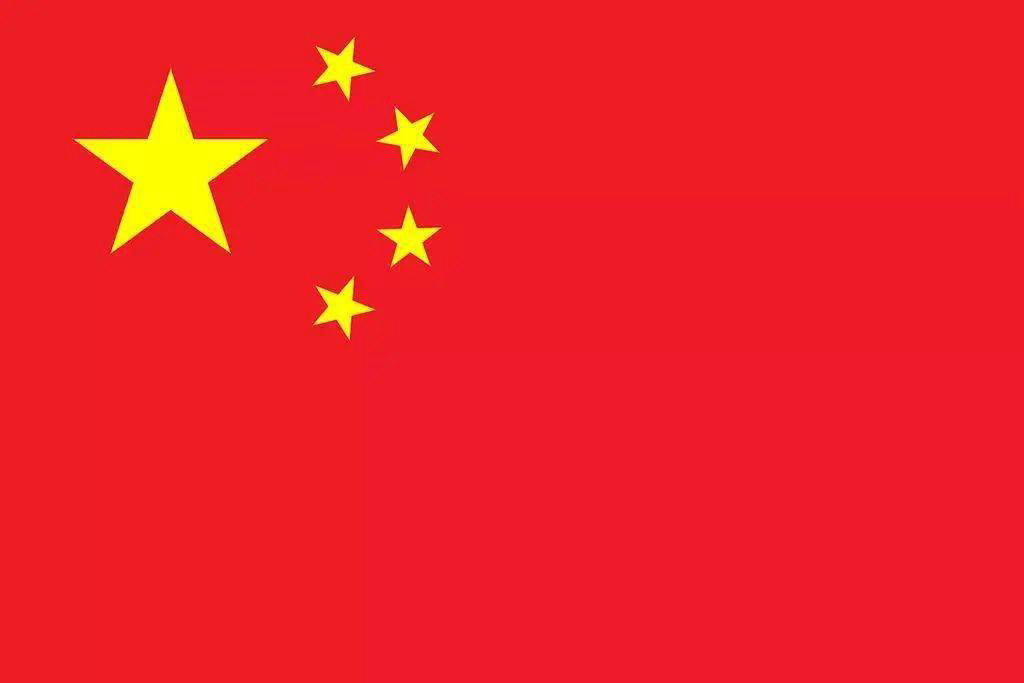
- HOME
- ABOUT US
-
Product Center
- Industrial robot series
- Electromechanical integration series
- Electrical series
- Electronic Series
- Multimedia teaching control system
- Intelligent Building Series
- CNC maintenance series
- Refrigeration and heating series
- Household appliance maintenance assessment equipment series
- Mechanical Engineering Series
- Mobile training vehicle
- Elevator series
- Automotive Maintenance Series
- New energy series
- Automation series
- News Center
- Case Center
- Data Download
- Contact Us
The Impact of the State Council's Action Plan for Promoting Large scale Equipment Renewal and Consumer Goods Exchange on the Teaching Equipment Industry
On March 7, 2024, the State Council issued the "Action Plan for Promoting Large scale Equipment Renewal and Consumer Goods Exchange". The original text is as follows:
Promoting large-scale equipment updates and exchanging old for new consumer goods is an important measure to accelerate the construction of a new development pattern and promote high-quality development. It will effectively promote investment and consumption, benefiting both the present and the future. In order to implement the decisions and deployments of the Party Central Committee, the following action plan is formulated to promote a new round of large-scale equipment updates and exchanging old for new consumer goods.
1、 Overall requirements
——Adhere to market orientation and government guidance. Give full play to the decisive role of market allocation of resources, combine various equipment and consumer goods to upgrade and differentiate demand, and rely on the market to provide diversified supply and services. Better leverage the role of the government, increase policy support in finance, taxation, investment, and other areas, strike a good combination of policies, guide businesses to make moderate concessions, and form a scale effect of renewal and replacement.
——Persist in encouraging the advanced and eliminating the backward. Establish a long-term mechanism that combines incentives and constraints, accelerate the elimination of outdated products and equipment, improve safety and reliability, and promote the development of high-end, intelligent, and green industries. Accelerate the construction of a unified national market and eliminate local protection.
——Adhere to standard guidance and orderly improvement. By benchmarking against international advanced levels and combining with the actual development of industries, we will accelerate the formulation and revision of standards in areas such as energy conservation, carbon reduction, environmental protection, safety, and recycling. Taking into account the enterprise's affordability and consumer acceptance, we will orderly promote the implementation of standards.
By 2027, the investment scale of equipment in industries, agriculture, construction, transportation, education, cultural tourism, medical and other fields will increase by more than 25% compared to 2023; The energy efficiency of major energy consuming equipment in key industries has basically reached the energy-saving level, and the proportion of production capacity with environmental performance reaching A-level has significantly increased. The popularization rate of digital research and design tools and the CNC rate of key processes in industrial enterprises above designated size have exceeded 90% and 75%, respectively; The recycling volume of scrapped cars has increased by about twice compared to 2023, the trading volume of used cars has increased by 45% compared to 2023, the recycling volume of waste household appliances has increased by 30% compared to 2023, and the proportion of recycled materials in resource supply has further increased.
2、 Implement device update actions
(1) Promote the upgrading and transformation of equipment in key industries. Focusing on promoting new industrialization, with energy conservation and carbon reduction, ultra-low emissions, safe production, digital transformation, and intelligent upgrading as important directions, we will focus on key industries such as steel, non-ferrous metals, petrochemicals, chemicals, building materials, electricity, machinery, aviation, shipbuilding, light textile, and electronics, and vigorously promote the updating and technological transformation of production equipment, energy consumption equipment, power generation and distribution equipment, etc. Accelerate the promotion of energy efficient and energy-saving equipment, and implement energy-saving and carbon reduction renovations in different industries and fields. Promote the application of intelligent manufacturing equipment and software, accelerate the construction and popularization of industrial Internet, and foster a new model of intelligent empowerment of the digital economy. Strictly implement mandatory standards for energy consumption, emissions, safety, and equipment obsolescence, and eliminate substandard equipment in accordance with laws and regulations.
(2) Accelerate equipment updates in the fields of construction and municipal infrastructure. Centered around the construction of new urbanization, combined with promoting urban renewal and the renovation of old residential areas, we will focus on residential elevators, water supply, heating, gas supply, sewage treatment, environmental sanitation, urban lifeline engineering, security, etc., and promote classified renovation and renovation. Accelerate the update of old residential elevators that do not meet current product standards and have high safety risks. Promote the upgrading and renovation of water plants and pressurized storage water supply facilities in various regions. Orderly promote the renovation of heating metering and continuously promote the updating and renovation of heating facilities and equipment. Focusing on external wall insulation, doors and windows, heating devices, etc., we will promote energy-saving renovation of existing buildings. Continuously implement the renewal and renovation of aging pipelines such as gas. Accelerate the development of urban sewage and waste treatment facilities and equipment to address weaknesses and strengths. Promote the construction of IoT intelligent perception equipment for supporting urban lifeline projects such as underground pipeline networks, bridges and tunnels, and manhole covers. Accelerate the renovation of security equipment such as video surveillance in key public areas and roads.
(3) Support the renewal of transportation equipment and old agricultural machinery. Continuously promote the electrification and replacement of urban buses, and support the upgrading of old new energy buses and power batteries. Accelerate the elimination of operational diesel trucks with National III and below emission standards. Strengthen the industrialization capacity construction of green aviation equipment such as electric and hydrogen energy. Accelerate the scrapping and updating of high energy consuming and high emission old ships, vigorously support the development of new energy powered ships, improve the supporting infrastructure and standard specifications of new energy powered ships, and gradually expand the application scope of new energy ships such as electric, liquefied natural gas power, biodiesel power, and green methanol power. Continuously implement the subsidy policy for scrapping and updating agricultural machinery, combine with the needs of agricultural production and the level of agricultural mechanization development, solidly promote the scrapping and updating of old agricultural machinery, and accelerate the structural adjustment of agricultural machinery.
(4) Improve the level of educational, cultural, tourism, and medical equipment. Promote eligible universities and vocational colleges (including technical colleges) to update and replace advanced teaching and research technology equipment, and improve the level of teaching and research. Strictly implement the standards for subject teaching equipment configuration, ensure quality and quantity configuration, and update teaching instruments and equipment in a timely manner. Promote the updating and upgrading of cultural and tourism equipment such as cable cars, amusement equipment, and entertainment equipment. Strengthen the construction of a high-quality and efficient medical and health service system, promote the iterative upgrading of medical and health institution equipment and information facilities, and encourage qualified medical institutions to accelerate the updating and transformation of medical equipment such as medical imaging, radiation therapy, remote diagnosis and treatment, and surgical robots. Promote the renovation and improvement of medical institution wards, and fill the gaps in ward environment and facilities.
3、 Implementing the Consumer Goods Trade in Action
(5) Carry out car trade ins. Increase policy support, unblock circulation bottlenecks, promote tiered and updated consumption of automobiles. Organize nationwide car trade in promotion activities, encourage automobile production and sales enterprises to carry out promotional activities, and guide orderly competition in the industry. Strictly implement the mandatory scrapping standards for motor vehicles and vehicle safety and environmental protection inspection standards, and eliminate old cars that meet the mandatory scrapping standards in accordance with the law and regulations. Optimize car purchase restrictions according to local conditions and promote the construction of an information exchange system for the full lifecycle management of car usage.
(6) Carry out the exchange of old for new household appliances. With the core of improving convenience, we aim to smooth the consumption chain of home appliance updates. Support home appliance sales enterprises to collaborate with production and recycling enterprises to carry out trade in promotions, establish online and offline home appliance trade in zones, and provide discounts to consumers who trade in old appliances for energy-efficient ones. Encourage eligible places to provide subsidies to consumers for purchasing green smart home appliances. Accelerate the implementation of home appliance after-sales service improvement actions.
(7) Promote the replacement of home decoration consumer goods. Through various means such as government support and corporate concessions, we will support residents in carrying out partial renovations of old houses, kitchens and bathrooms, continuously promote home aging friendly renovations, and actively cultivate new types of consumption such as smart homes. Promote home decoration showrooms to enter shopping malls, communities, and platforms, encourage enterprises to create online showrooms, provide affordable products and services, and meet diverse consumer needs.
4、 Implement recycling and reuse actions
(8) Improve the network for recycling waste products and equipment. Accelerate the development of the "replacement+recycling" logistics system and new models, support the construction of reverse logistics systems for durable consumer goods production and sales enterprises, or cooperate with professional recycling enterprises to collect waste consumer goods on site. Further improve the recycling network of renewable resources and support the construction of a number of centralized sorting and processing centers. Optimize the layout of scrapped car recycling and dismantling enterprises, and promote the door-to-door pickup service model. Improve the recycling channels for office equipment in public institutions. Support the development of online trading platforms for waste products and equipment.
(9) Support the circulation and trading of second-hand goods. Continuously optimize the registration management of second-hand car transactions and promote convenient transactions. Vigorously develop the export business of second-hand cars. Promote the standardization of second-hand electronic product transactions, prevent leakage and malicious recovery of user information. Promote second-hand commodity trading platform enterprises to establish and improve evaluation mechanisms for distribution enterprises and users within the platform, and strengthen information sharing on credit records, illegal and dishonest behaviors, etc. Support electronic product manufacturing enterprises in developing second-hand trading, refurbishment and maintenance businesses.
(10) Orderly promote remanufacturing and cascading utilization. Encourage the remanufacturing of waste production equipment that meets the conditions, and the quality characteristics and safety and environmental protection performance of remanufactured products should not be lower than that of prototype new products. Promote the application of non-destructive testing, additive manufacturing, flexible processing and other technologies to improve the level of remanufacturing and processing. Deepen the remanufacturing of traditional equipment such as automotive components, construction machinery, and machine tools, and explore the development of high-end equipment remanufacturing businesses in emerging fields such as wind power, photovoltaics, and aviation. Accelerate the research and development of residual life assessment technology for wind power, photovoltaic, power battery and other product equipment, and orderly promote the cascading utilization of product equipment and key components.
(11) Promote high-level regeneration and utilization of resources. Promote the agglomeration and large-scale development of enterprises engaged in the processing and utilization of renewable resources, and guide the gradual withdrawal of inefficient production capacity. Improve the support policies for the disposal of discarded electrical and electronic products, and study and expand the coverage of the disposal system for discarded electrical and electronic products. Support the construction of a batch of industrial clusters for deep processing of recycled resources such as scrap steel, non-ferrous metals, and plastics. Actively and orderly develop biomass liquid fuels mainly made from discarded fats and non grain biomass. Explore the construction of an information-based traceability system for the use of recycled materials such as recycled plastics and recycled metals that comply with international standards. Continuously improve the technological level of waste non-ferrous metal utilization and strengthen the research and application of rare and precious metal extraction technology. Timely improve import standards and policies for retired power batteries, recycled materials, etc.
5、 Implement standard improvement actions
(12) Accelerate the improvement of energy consumption, emissions, and technical standards. We will benchmark against international advanced levels, accelerate the formulation and revision of a number of mandatory national standards for energy consumption quotas and product equipment energy efficiency, dynamically update the advanced level, energy-saving level, and access level of key energy consuming products and equipment energy efficiency, and accelerate the improvement of energy-saving indicators and market access thresholds. Accelerate the upgrading of energy consumption limit standards for passenger cars and heavy-duty commercial vehicles. Accelerate the improvement of emission standards for key industries, optimize and enhance the level of emission control for atmospheric and water pollutants. Revise and improve the evaluation index system for clean production, and formulate and revise carbon emission accounting standards for key industry enterprises. Improve standards for upgrading and retiring wind turbines, photovoltaic equipment, and products.
(13) Strengthen the improvement of product technical standards. Focusing on major consumer goods such as automobiles, household appliances, home products, consumer electronics, and civilian drones, we will accelerate the upgrading of standards for safety, health, performance, environmental protection, and testing. Accelerate the improvement of the quality and safety standard system for household appliances, vigorously promote the safe service life and energy-saving knowledge of household appliances. Accelerate the upgrading of quality standards for consumer goods, develop a supervision catalog for consumer product quality and safety, and strictly supervise quality and safety. Improve the standard system for carbon labeling and fully leverage the role of standard leadership, green certification, and high-end certification.
(14) Strengthen the standard supply of resource recycling. Improve green design standards for materials and components that are easy to recycle, disassemble, recycle, and remanufacture. Develop and revise recycling standards for waste electrical and electronic products, as well as recycling standards for renewable resources. Introduce national standards for clearing information in second-hand transactions of electronic products such as mobile phones and tablets, guide second-hand electronic product distribution enterprises to establish information security management systems and information technology service management systems, and study and formulate grading standards for the availability of second-hand electronic products.
(15) Strengthen the connection between domestic and international standards in key areas. Establish and improve a mechanism for tracking and converting international standard consistency, conduct comparative analysis between Chinese standards and relevant international standards, convert a batch of advanced and applicable international standards, and continuously improve the conversion rate of international standards. Support domestic institutions to actively participate in the revision of international standards, and support key industry standards such as new energy vehicles to go global. Strengthen domestic and international connections such as quality standards, inspection and quarantine, certification and accreditation.
6、 Strengthen policy protection
(16) Increase fiscal policy support. Include eligible equipment updates and recycling projects within the scope of central budget investment and other financial support. Adhere to the linkage between the central finance and local governments to support the trade in of consumer goods, and support eligible cars through energy-saving and emission reduction subsidies arranged by the central finance; Encourage areas with conditions to coordinate the use of funds related to the modern commercial circulation system arranged by the central government, and support the trade in of durable consumer goods such as household appliances. Continuously implement subsidies for the renewal of old operating vehicles and ships, and support the renewal of old ships, diesel trucks, and other vehicles. Encourage eligible regions to coordinate and utilize the urban transportation development incentive funds arranged by the central government to support the renewal of new energy buses and batteries. Make good use of the subsidy policy for scrapping and updating agricultural machinery. The central government has established special funds to support the recycling and disposal of discarded electrical and electronic products. Further improve the government's green procurement policy and increase the procurement of green products. Strictly enforce financial discipline, strengthen the full process, full chain, and all-round supervision of fiscal funds, and improve the effectiveness and accuracy of the use of fiscal funds.
(17) Improve tax support policies. Increase tax incentives for energy-saving and water-saving, environmental protection, and safety production specialized equipment, and include digital and intelligent transformation in the scope of preferential treatment. Promote the practice of "reverse invoicing" by resource recycling enterprises to sell scrapped products to natural persons. Cooperate with the simplified value-added tax collection policy for renewable resource recycling enterprises, study and improve supporting measures for income tax collection and management, and optimize tax collection standards and methods.
(18) Optimize financial support. Using refinancing policy tools to guide financial institutions to strengthen their support for equipment updates and technological upgrades; The central government provides certain interest subsidy support to bank loans that meet the conditions for re loan reimbursement. Play a role in expanding the mechanism for medium and long-term loan disbursement in the manufacturing industry. Guide banking institutions to reasonably increase green credit and strengthen financial support for the production, service, and consumption of green smart home appliances. Encourage banking institutions to appropriately reduce the down payment ratio of passenger car loans and reasonably determine the loan term and credit limit of car loans under the premise of legal compliance and controllable risks.
(19) Strengthen factor protection. Strengthen the guarantee of land, energy and other elements for enterprise technological transformation projects. Simplify the preliminary approval procedures for technical renovation projects that do not require additional land and mainly focus on equipment updates. Coordinate the construction of facilities for the classification, collection, transfer, storage, and recycling of domestic waste within the region, and include them in the scope of public infrastructure land to ensure reasonable land use needs.
(20) Strengthen innovation support. Focusing on the industrial foundation and major technological equipment bottlenecks that have long plagued the transformation and upgrading of traditional industries, actively carrying out major technological equipment scientific and technological breakthroughs. Improve mechanisms such as "unveiling and leading", "horse racing", and innovative product iteration, strengthen the support of manufacturing pilot capacity, and accelerate the industrial application of innovative achievements.
All regions and departments should, under the centralized and unified leadership of the Party Central Committee, improve their work mechanisms, strengthen overall coordination, interpret policies well, and create a good social atmosphere for promoting large-scale equipment updates and exchanging old for new consumer goods. The National Development and Reform Commission, in conjunction with relevant departments, should establish a specialized team to strengthen coordination and coordination, and strengthen the linkage between the central and local governments. Each relevant department should formulate specific plans and supporting policies according to their respective responsibilities, implement departmental responsibilities, strengthen tracking and analysis, and promote the implementation of various tasks in detail. Major issues shall be promptly reported in accordance with the procedures
According to this action plan to promote large-scale equipment updates and trade in consumer goods, the teaching equipment industry will have a significant impact.
In this context, the teaching equipment industry, as an important component of the education sector, will benefit from the dual growth of policy promotion and market demand. With the acceleration of the modernization process of education, the demand for updating and replacing teaching equipment will continue to increase, bringing new development opportunities to the teaching equipment industry.
Secondly, the action plan proposes four major actions: implementing equipment updates, exchanging old for new consumer goods, and improving recycling standards. In the field of teaching equipment, this means that schools and educational institutions will increase their efforts to update and replace equipment, gradually phasing out old and inefficient teaching equipment, and introducing advanced and efficient teaching and research technology equipment. This will directly promote the expansion of the market size and improvement of technological level in the teaching equipment industry.
In addition, the action plan emphasizes the principle of prioritizing the market and government guidance, fully leveraging the decisive role of the market in allocating resources. This means that the teaching equipment industry will continue to develop and grow in market competition, meeting the diverse needs of schools and educational institutions by improving product quality and service levels. At the same time, the government will also increase policy support in finance, taxation, and investment to provide strong support for the development of the teaching equipment industry.
Finally, the action plan also proposes specific goals by 2027, including increasing investment in equipment in industries such as agriculture, construction, transportation, education, cultural tourism, and healthcare. The growth of investment in educational equipment will directly drive the development of the teaching equipment industry. With the continuous increase in education investment and the deepening of educational informatization, the teaching equipment industry will usher in a broader development space.
In summary, this action plan has a positive impact on the teaching equipment industry. The teaching equipment industry will benefit from the dual growth of policy promotion and market demand, ushering in new development opportunities. At the same time, the teaching equipment industry also needs to continuously improve its technical level and service quality to adapt to changes in market demand and policy orientation.
Guangxue Teaching Equipment Co., Ltd., as a manufacturer of teaching equipment industry, will actively keep up with the pace of the times, keep up with national policy requirements, and strive to develop intelligent and environmentally friendly teaching equipment that meets practical needs, contributing to China's education industry.
LATEST NEWS
- Warmly welcome Mr. Yu and his delegation from Shandong Yanxue Education Equipment Co., Ltd. to visit and inspect our company 2024-04-27 08:57:58
- The Impact of the State Council's Action Plan for Promoting Large scale Equipment Renewal and Consumer Goods Exchange on the Teaching Equipment Industry 2024-04-23 14:01:21
- Sweat creates glory, Guangxue "Passion Cup" table tennis pre match training is in full swing 2024-04-19 16:34:07
- Strengthen safety awareness to ensure employee health 2024-04-11 13:43:34
- 【 Guangzhou News 】 Beihai Qihang Vocational and Technical School and Guangzhou Guangxue Teaching Equipment Co., Ltd. Join Hands to Build a New Future of Vocational Education 2024-03-18 10:20:13
- Jinlong welcomes the new and builds a dream for the future. The 2024 Guangzhou Guangxue Enterprise Annual Conference was successfully held! 2024-01-31 16:56:04
- Welcome teachers from Zhengzhou Institute of Industrial Technicians to visit the company for research and inspection 2023-09-12 10:47:23
- Guangdong Light Industry Technician College Visits the Company for Inspection 2023-08-28 10:43:33
- Cohesion | Promoting Youth - News Report on 2023 Youth League Building Activities 2023-08-07 17:46:46
- Caring attentively and walking hand in hand "| The company organizes a group building dinner event for all employees 2023-07-22 11:02:28



